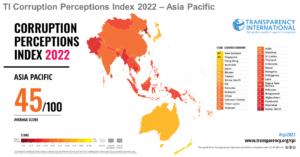 New Zealand is ranked highly on the Worldwide Governance Indicators (WGI), which assess performance on six dimensions of governance: voice and accountability, political stability and absence of violence, government effectiveness, regulatory quality, rule of law, and control of corruption. Moreover, New Zealand has long been rated by Transparency International‘s Corruption Perceptions Index (CPI) as having the very lowest rates of corruption globally. This paper gives attention to methodological and related arguments about the general validity of both the WGI and the CPI, which are widely accepted as relative fact.
New Zealand is ranked highly on the Worldwide Governance Indicators (WGI), which assess performance on six dimensions of governance: voice and accountability, political stability and absence of violence, government effectiveness, regulatory quality, rule of law, and control of corruption. Moreover, New Zealand has long been rated by Transparency International‘s Corruption Perceptions Index (CPI) as having the very lowest rates of corruption globally. This paper gives attention to methodological and related arguments about the general validity of both the WGI and the CPI, which are widely accepted as relative fact.
Gregory, Robert. "Assessing ‘Good Governance’ and Corruption in New Zealand: ‘Scientific’ Measurement, Political Discourse, and Historical Narrative". Institute for Governance and Policy Studies, School of Government. October 2013. https://www.victoria.ac.nz/...
Posted on 02/04/23
Recent Abstracts
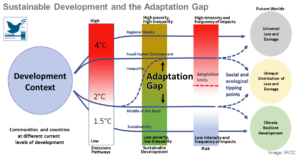
Adaptation of the Building Sector to Climate Change: 10 Principles for Effective Action
We are witnessing unprecedented climate change due to the rapidly increasing concentration of CO₂ in the atmosphere. Climate change is having severe consequences for communities that are designed for steady climatic conditions – not for the predicted climate extremes. Data collected over the recent decades shows that ...
Posted on 19/07/24
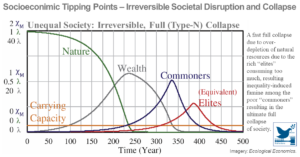
Human and Nature Dynamics (HANDY): Modeling Inequality and Use of Resources in the Collapse or Sustainability of Societies
There is widespread concern that current trends in resource use are unsustainable. The over-exploitation and depletion of nature and natural resources and the strong economic stratification of society into the rich elites and the poor commoners are evident in all historical societal collapses, either of which can inde ...
Posted on 18/07/24
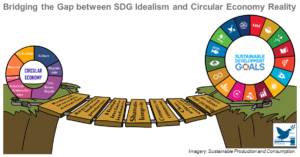
How Can the Circular Economy Support the Advancement of the Sustainable Development Goals (SDGs)? A Comprehensive Analysis
Circular economy (CE) as a framework to advance the Sustainable Development Goals (SDGs) has serious risks and various shortcomings. Where CE and the SDGs are misaligned, there is a gap between products, the socioeconomic circumstances of the people who produce and use them, and the environment where the products are ...
Posted on 17/07/24
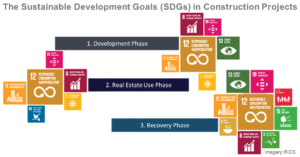
Beyond the Business Case
The building and construction industry plays a critical role in achieving global sustainability, especially in tackling the global climate crisis. The scope and breadth of sustainability encompassed by the UN Sustainable Development Goals (SDGs) is an integral part of the business case for global real estate. The SDG ...
Posted on 16/07/24
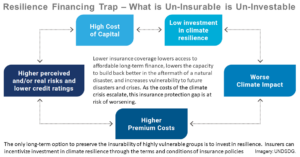
Seeking Synergy Solutions – A New Financial System to Enable Both Climate and SDG Action
The investment in sustainable development and climate actions is at the center of the SDG agenda and climate negotiations. However, there are many obstacles to realizing the potential synergies between the SDGs and climate action. The financing gap to achieve the global climate target of 1.5°C by 2030 set out in the ...
Posted on 15/07/24

Macroeconomic Impacts of Increased Decarbanisation and Green Industrial Policies in the European Union
The study models two scenarios for the period 2022 to 2050 and their impact on the economy and the labor market as well as on energy consumption/production, energy prices, and greenhouse gas emissions in the EU and Austria. The main objective of the study is to show the macroeconomic impact of certain industrial polic ...
Posted on 12/07/24

A Fundamental Right to the Environment: A Matter for Local And Regional Authorities
The ongoing effects of global warming, biodiversity loss, and pollution pose a serious risk to the enjoyment of fundamental human rights, including the right to life, health, and private and family life. The impacts of global warming have led to the recognition of a human rights-based approach to addressing climate ch ...
Posted on 08/07/24
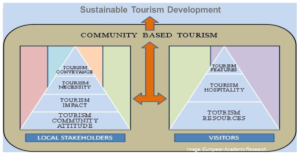
Seeking Leadership for a Sustainable Future
Sustainable development of communities requires leadership and relies on the involvement and participation of stakeholders in the future sustainability of communities. Development is implemented at the local level by communities and their stakeholders, whether residents or visitors. Organizations at international and ...
Posted on 04/07/24
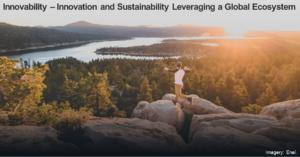
Enel Innovation and Crowdsourcing – Open Innovability
Innovation can only be meaningful if focused on sustainability. Enel recognizes that innovation and sustainability are inextricably linked and that innovation is the key to sustainable success – Enel calls this “innovability”. Society can only be sustainable by generating measurable long-term social and environmental ...
Posted on 27/06/24
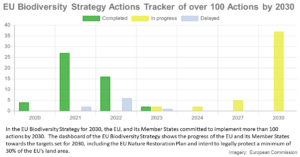
EU Biodiversity Strategy Actions Tracker
In the EU Biodiversity Strategy to 2030, the EU and its Member States have committed to implement more than 100 measures by 2030, including the EU Nature Restoration Plan to protect and restore at least 30% of the degraded and carbon-rich ecosystems by law. In Austria as in most EU countries, conservative parties and ...
Posted on 26/06/24
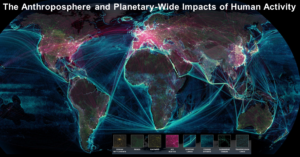
Planetary Terminology
Human societies and biodiversity on Earth are under threat because human resource consumption is exceeding or threatening the physical and ecological boundaries of our planet. To discuss and address the challenges, find solutions, and take urgent measures to tackle climate change, the terminology used in discussions a ...
Posted on 25/06/24

The Intricacies of Data Center Development
Data centers house the critical servers, storage, and networking equipment that keep data flowing smoothly in local communities and around the world. The development and operation of data centres require thorough assessment and consideration of land valuation, site analysis, power consumption and consumption capacity. ...
Posted on 24/06/24
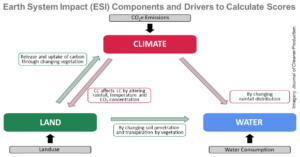
Going beyond carbon: An “Earth System Impact” Score to Better Capture Corporate and Investment Impacts on the Earth System
Four interactions – changes in climate affecting water runoff; changes in climate affecting vegetation cover; changes in vegetation cover affecting climate; and changes in vegetation cover affecting water runoff – are deemed of utmost importance for understanding the impact on the Earth system on policy-relevant timefr ...
Posted on 21/06/24

True (but Requires Context): Finland Faces the Highest Costs under EU’s Environmental Restoration Law Relative to its Economy
The European Nature Restoration Law (NRL) establishes rules and procedures for the restoration and conservation of natural resources and ecosystems to compensate or offset damage to natural resources and promote sustainable development. While center-right, far-right and conservative politicians such as Kai Mykkänen, F ...
Posted on 18/06/24
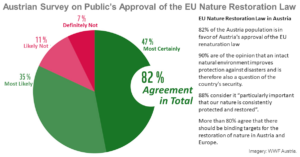
Nature Restoration: Austrian Conservatives Charge Gewessler for Abuse of Office
The Austrian Environment Minister Leonore Gewessler (Greens) voted in defiance of the coalition partner to pass the EU’s Nature Restoration Law, thereby pushing it through by a narrow majority. She decided that it was her duty to approve this central pillar of the EU’s efforts to reverse the major degradation of its l ...
Posted on 17/06/24

